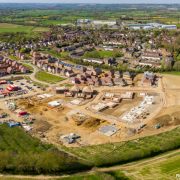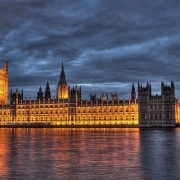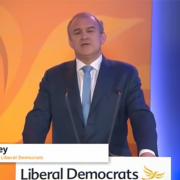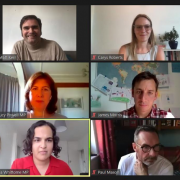2021 Will Be Good For Public Affairs
Dr Stuart Thomson, head of public affairs at law firm BDB Pitmans and winner of the Current Affairs category at the Online Influence Awards 2020, explains why public affairs is essential in 2021, and offers advice to maximise success.
The management of political risk became mainstream in 2020 as organisations saw the value of engagement. There is every indication that 2021 will be good for public affairs but only if we continue to deliver value.
The early months
As we have already seen, the early months of 2021 will be dominated by continued lockdown and the Covid vaccinations rollout. But once that is over, we can then expect the Government to engage in some serious policy development and communications activity. There will be the mother of all relaunches as it attempts to build on any goodwill created by the vaccine rollout and starts to put forward an agenda to try to win the next General Election.
There are a huge set of elections coming up in May, should Covid allow that timing. But even if the timescale slips slightly, the Government won’t want to delay them too long; there is every indication that these elections, across England, Scotland and Wales, will reflect the Government’s handling of Covid. Anyone expecting a major Cabinet reshuffle would do well to look for one after these elections. If the Government doesn’t do well then this would be a good time for a ‘refresh’ of the team.
Red wall challenges
Many of the challenges that the Prime Minister faces will come from his own side. His MPs seem quite upset to the approach adopted to lockdown and the apparent reliance on the power of the ‘U turn’ to solve bad headlines.
The replacement of Dominic Cummings gave some hope that a new approach was on its way and that may still be the case. It appears though that Covid continues to stop all else in its tracks even a new approach to working with colleagues.
There is no doubt that the new red wall Conservative MPs will need to show that the Government has made progress by the time of the next election. Certainly, Brexit has been delivered in a way that most supporters find acceptable but that will not be enough.
Implications for public affairs
What should we in public affairs do to ensure that we continue to deliver value during the course of these and other events during 2021?
- Be ahead of events – many of them we know about in advance, such as the elections but also the Budget, a more detailed Spending Review etc, but also consider the more unexpected as well. Do such events offer opportunities for engagement? What happens with their outcomes? Do you need to react?
- Think policy – the Government’s need for a relaunch and the emphasis on pre-General Election delivery means that they will need to come up with a constant stream of ideas and make others, such as those promised for devolution, work. That needs constructive engagement and an emphasis on supplying solutions.
- Think projects – particularly across the Red Wall, building things will be important. Something that means the local MP can cut a ribbon and the silver plaque outside commemorating the opening can have a Union flag as well. Can you help deliver such schemes or, at least, support them?
- The environment – with the COP 26 conference coming up at the end of 2021, the Government will have a particular emphasis on climate change. Is there anything you can do to help deliver on the environmental challenge?
Even as Covid starts to fade as a top line issue, the Government’s political challenges remain. Good public affairs engagement is increasingly about political risk management and if 2020 taught us anything it is that dialogue with Government is essential. That will continue to be the case in 2021 and beyond.





















